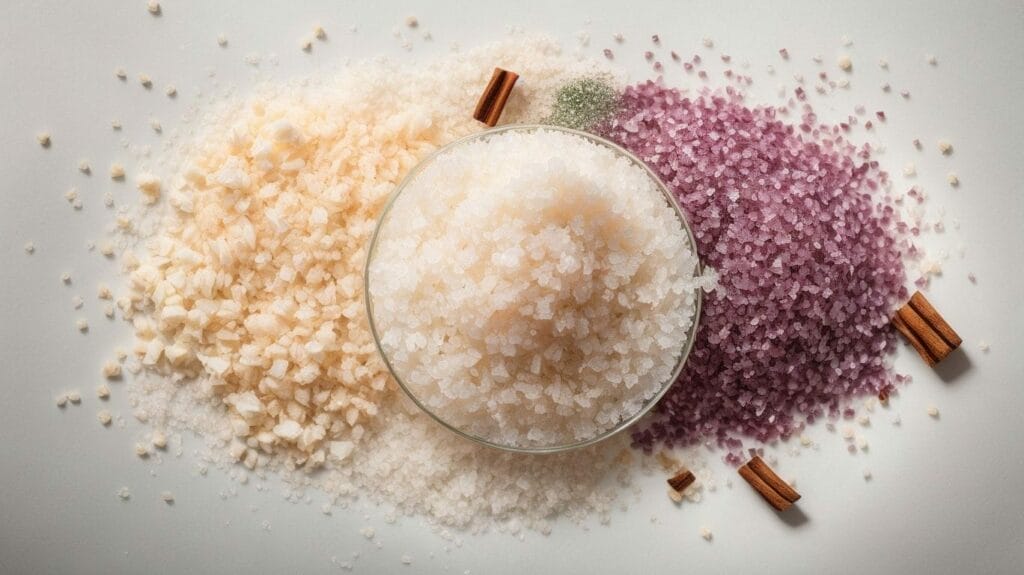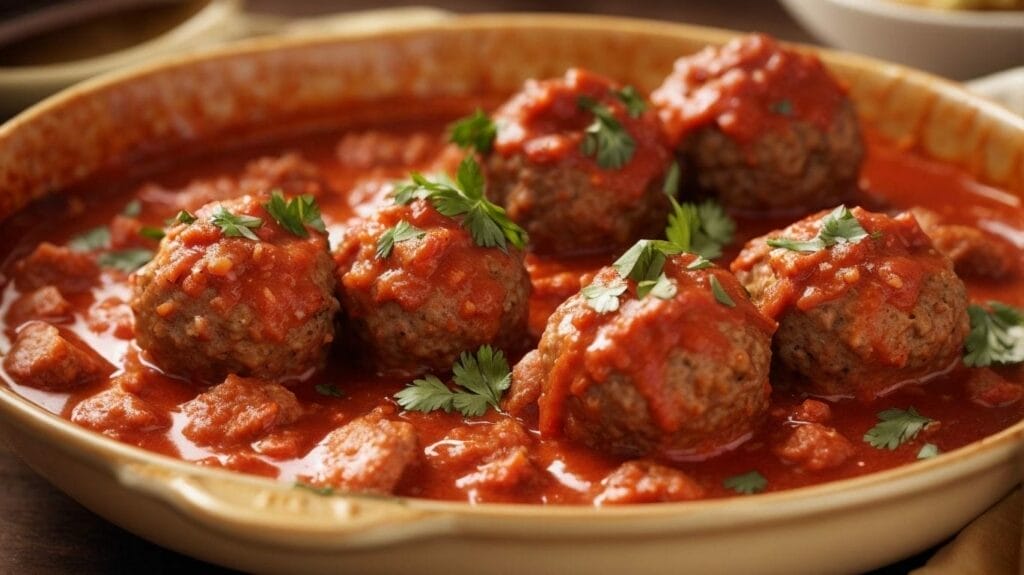Kosher salt is a staple ingredient in many recipes, and you may wonder why it’s specifically called for in certain dishes. Understanding the unique properties of kosher salt can shed light on why it’s favored by chefs and home cooks alike. Unlike table salt, kosher salt has a coarse texture and is free of additives like iodine. This makes it a preferred choice for seasoning and cooking. Recipes often call for kosher salt for several reasons. Firstly, the texture of kosher salt allows for better control over the amount of saltiness in a dish, as its larger crystals take up more space. Secondly, the absence of additives in kosher salt enhances the overall seasoning, allowing the flavors of the ingredients to shine through. Kosher salt is also used for more precise seasoning techniques, such as salting meat before cooking. Knowing how to use kosher salt in cooking properly and understanding its substitutes can help you achieve the desired results in your culinary creations. There are some common myths and misconceptions about kosher salt that can be clarified to enhance your understanding of this versatile ingredient further.
Key takeaways:
- Texture: Kosher salt has larger, coarser grains than table salt, making it ideal for adding texture and crunch to dishes like roasted vegetables or pretzels.
- Control over saltiness: The flakes of kosher salt dissolve more slowly, allowing for better control over the saltiness of a dish since you can taste and adjust as you go.
- Enhanced seasoning: Kosher salt’s larger crystals make it easier to distribute evenly, resulting in more evenly seasoned food, enhancing the flavors in a recipe.
What is Kosher Salt?
What is Kosher Salt?
Kosher salt is a type of salt that is commonly used in cooking and food preparation. This salt, known for its larger flakes than table salt, offers a unique texture for better control over saltiness. The name “kosher salt” originates from koshering, which follows Jewish dietary laws and involves removing blood from the meat. Many chefs prefer kosher salt because it dissolves quickly, evenly seasons food, and enhances flavors. So, the next time you encounter a recipe that calls for kosher salt, you will understand why it is recommended.
How is Kosher Salt Different from Table Salt?
“`
How is Kosher Salt Different from Table Salt?
Kosher salt differs from table salt in several ways. The grains of kosher salt are larger and coarser than table salt’s fine texture. This makes kosher salt easier to pinch and sprinkle, which is important for seasoning meat. Kosher salt does not contain additives like iodine, which can affect the flavor of certain dishes. Because of its flaky texture, kosher salt adheres to food better, allowing for better control over the seasoning process. The differences in texture and composition make kosher salt preferred in many recipes. So, consider using kosher salt next time you cook for a more precise and flavorful seasoning experience.
Why Do Recipes Call for Kosher Salt?
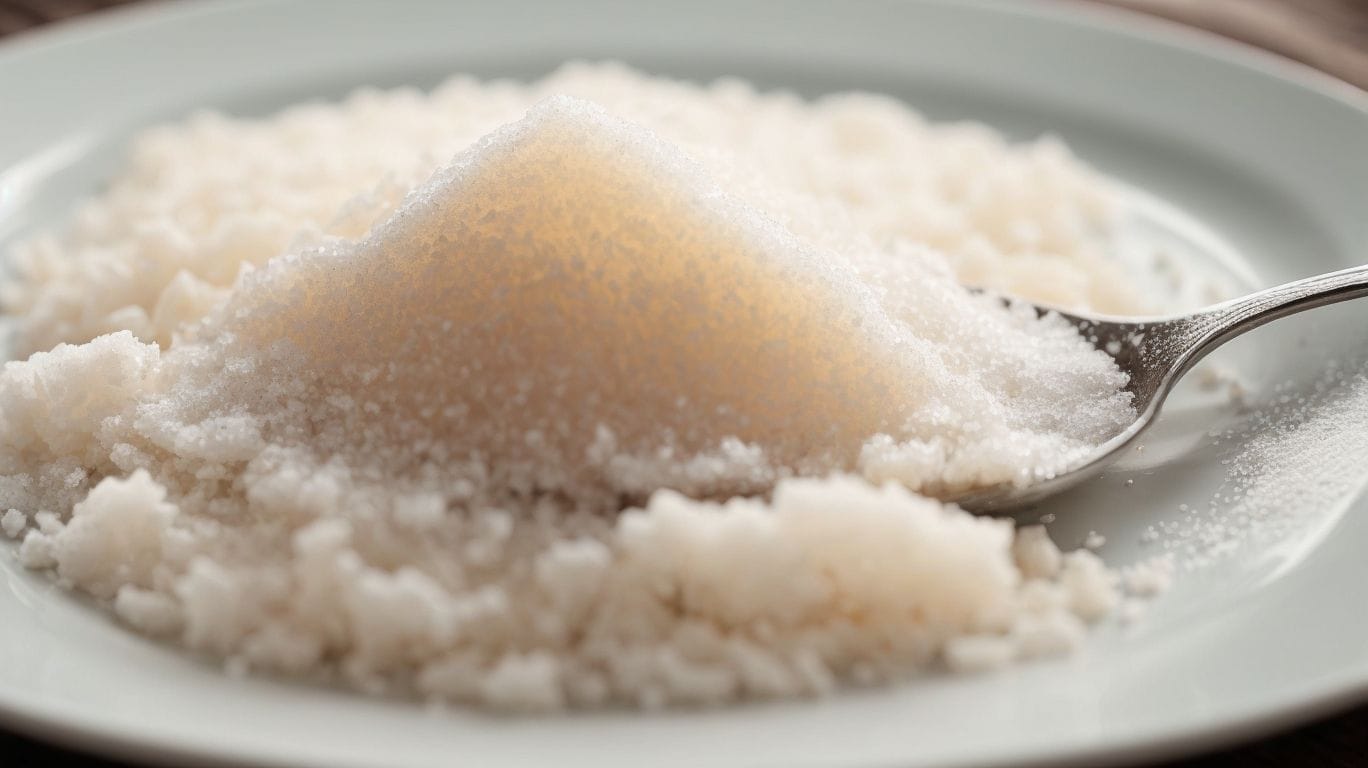
Photo Credits: Refuelrecipes.Com by Keith Green
Regarding recipes, you might have wondered why some call specifically for kosher salt. Well, let’s dig into the reasons behind this culinary choice. In this section, we’ll explore the unique qualities that kosher salt brings to dishes. From its texture to control over saltiness and how it enhances the overall seasoning, we’ll uncover why recipes often specify kosher salt. So, get ready to elevate your seasoning game and uncover the flavorful world of kosher salt!
Texture
The texture of kosher salt is what sets it apart from other salts. Its coarse and flaky texture makes it ideal for various culinary purposes. The larger grains of kosher salt dissolve more slowly, providing a satisfying crunch and enhancing the texture of dishes. Additionally, its texture allows for better control when adding salt to a recipe, as the grains can be felt between your fingers. Furthermore, the texture of kosher salt aids in its adherence to food surfaces, resulting in a more even and consistent seasoning.
Control over Saltiness
Recipes call for kosher salt because it provides better control over dish saltiness. This is due to its unique texture and shape. Here are some reasons why chefs prefer using kosher salt for better control over saltiness:
- Kosher salt provides better control over saltiness: Kosher salt dissolves more slowly than table salt, making it easier to control how much salt is added to a dish.
- Enhanced seasoning: The larger grains of kosher salt allow it to adhere to the food surface better, resulting in more even seasoning.
- Easier to pinch: The coarse texture of kosher salt makes it easier to pinch and sprinkle, giving you more precision in adding salt to your recipe.
- Less dense for greater control: Kosher salt is less dense than table salt, so kosher salt will contain less salt than a pinch of table salt, allowing for more control over saltiness.
Pro-tip: To further control the saltiness of a dish, start with less salt and gradually add more if needed. Remember to taste as you go to achieve the desired flavor.
Enhanced Seasoning
Enhanced seasoning is one of the main reasons why recipes call for kosher salt. Kosher salt, with its larger and coarser grains, is perfect for enhanced seasoning and provides better control over saltiness, giving dishes an extra flavor. The texture of kosher salt allows it to dissolve slowly and evenly, ensuring that it permeates the food evenly. Additionally, the larger crystals create a pleasing crunch and texture when used as a finishing salt. So, when you want to elevate the taste of your dishes and add an extra burst of flavor, using kosher salt for enhanced seasoning is a great choice.
How to Use Kosher Salt in Cooking?
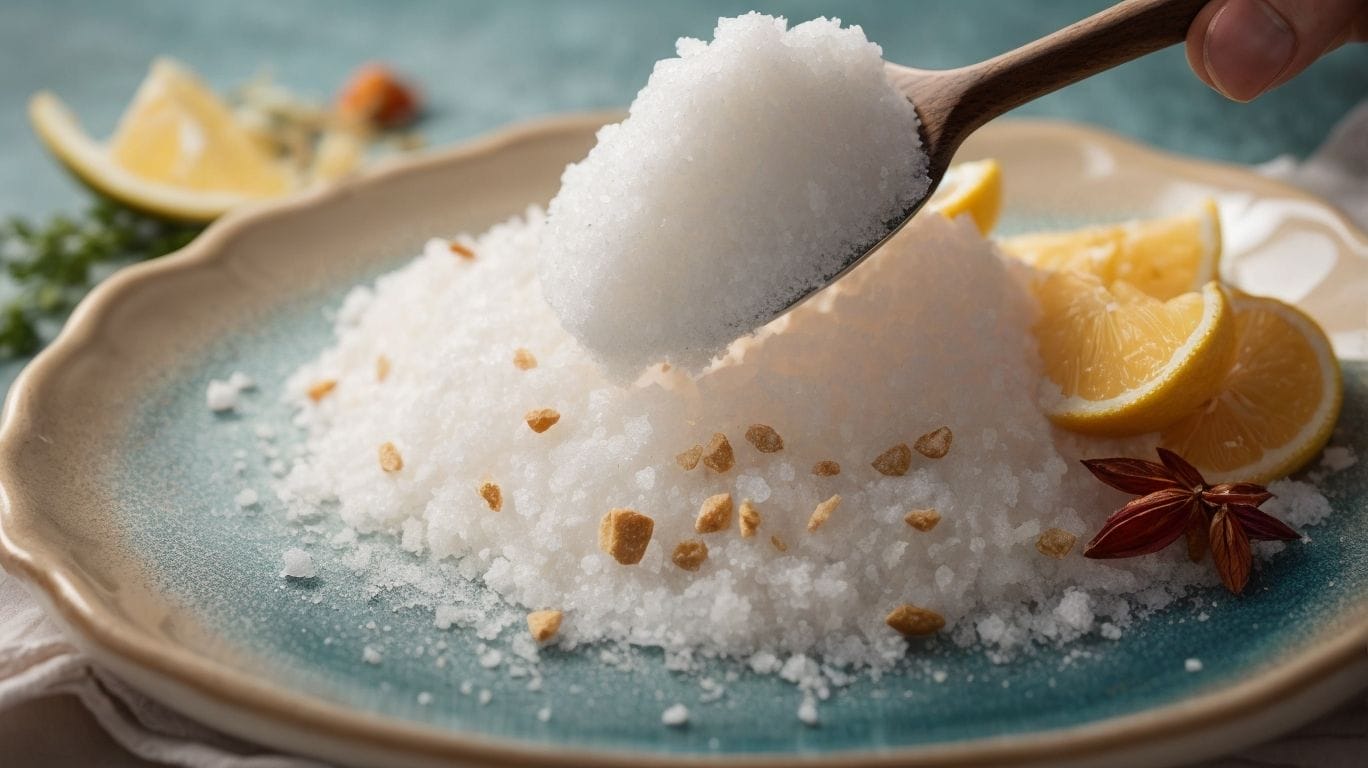
Photo Credits: Refuelrecipes.Com by Stephen Perez
Using kosher salt in cooking can enhance the flavor and texture of your dishes. Here are some steps on how to use kosher salt effectively:
- Seasoning: Sprinkle kosher salt evenly over your ingredients to season them before cooking.
- Brining: Dissolve kosher salt in water to create a brine for meat, poultry, or seafood. This helps to add moisture and flavor.
- Finishing: Sprinkle a pinch of kosher salt over cooked dishes just before serving to enhance the flavors and provide a satisfying crunch.
Incorporating kosher salt into your cooking can elevate your dishes to the next level. Experiment and find the perfect balance of saltiness to suit your taste preferences. Why Do Recipes Call for Kosher Salt
Tips for Substituting Kosher Salt with Other Salts
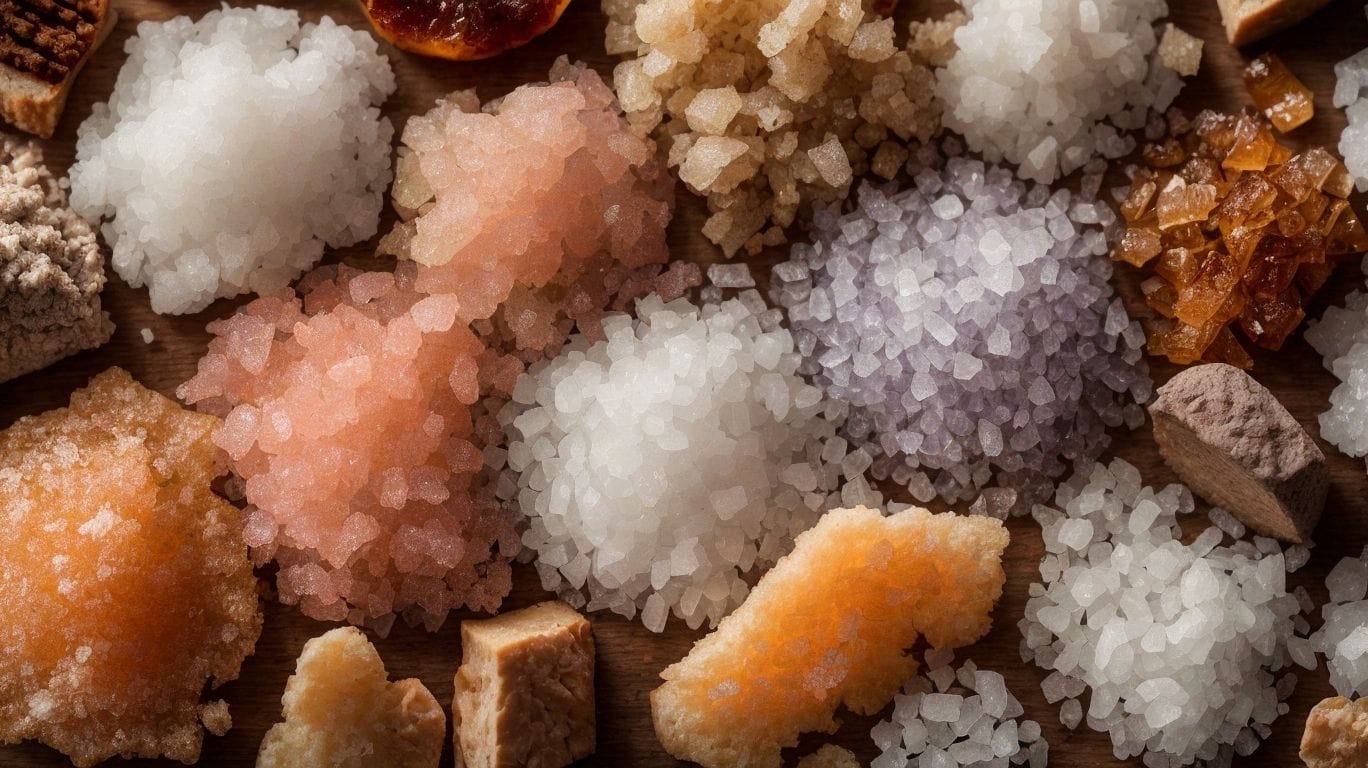
Photo Credits: Refuelrecipes.Com by Albert Robinson
Are you looking to substitute kosher salt in your recipes? Let’s dive into some handy tips and alternatives. This section will explore popular options like table salt, sea salt, and Himalayan pink salt. Discover each salt’s unique flavor profiles and characteristics, and learn how they can be used as viable replacements for kosher salt in your culinary creations. So, join us on this flavorful journey and elevate your cooking with the perfect salt substitution.
Table Salt
Here’s a brief comparison table of table salt, highlighting its characteristics and usage:
| Characteristic | Usage |
| Fine texture | Ideal for baking and general cooking |
| Highly refined | It can easily dissolve in recipes |
| Often contains additives | Used in processed foods and seasoning blends |
| Uniform grain size | Perfect for precise measurements |
| Usually iodized | Commonly used for iodine supplementation |
| Why Do Recipes Call for Kosher Salt | External Link |
Pro-tip: When using table salt in recipes that call for larger salt crystals like kosher salt, reduce the amount slightly to avoid overstepping.
Sea Salt
Sea salt, also known as sea salt, is a popular and widely used alternative to kosher salt in the culinary world. Whether for cooking or seasoning, sea salt can be a great choice. Harvested from the natural process of evaporated seawater, sea salt retains its valuable minerals, such as magnesium and potassium, which can contribute to a healthier diet. Its unique flavor and distinct texture make it an excellent addition to various dishes, elevating their overall taste. However, it is essential to remember that the coarseness of sea salt may differ, requiring adjustments in the quantity used in recipes. Moreover, sea salt can benefit those seeking to reduce their sodium intake, as it generally contains a slightly lower amount of sodium than table salt.
Himalayan Pink Salt
Himalayan Pink Salt, known for its unique color and mineral-rich composition, is a popular alternative to table salt in cooking and seasoning. Here are some reasons why it is worth considering:
- Rich in minerals: Himalayan Pink Salt contains trace minerals like potassium, calcium, and magnesium, which can enhance the flavor and nutritional value of your dishes.
- Subtle flavor: This salt has a milder and less harsh taste than table salt, making it a versatile choice for various recipes.
- Texture: The coarse texture of Himalayan Pink Salt allows for easy grinding and adds a pleasant crunch to your dishes.
- Visual appeal: The vibrant pink color of this salt can enhance the presentation of your meals, especially when used as a finishing touch.
Next time you’re looking for a natural and visually appealing option, consider using Himalayan Pink Salt to elevate the taste and appearance of your favorite dishes.
Common Myths and Misconceptions about Kosher Salt
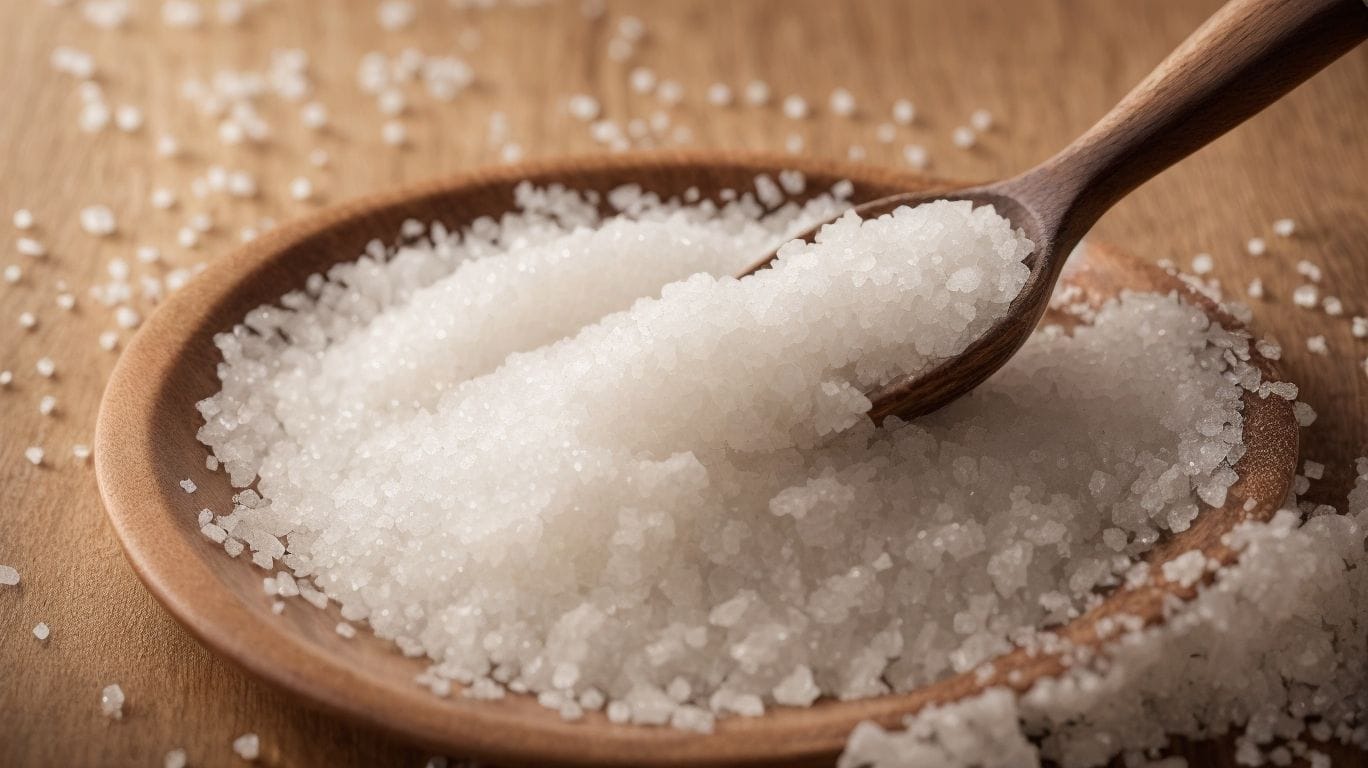
Photo Credits: Refuelrecipes.Com by Philip Taylor
Kosher salt is a popular ingredient in recipes, but there are common myths and misconceptions about its use. Let’s debunk these misunderstandings:
- Myth 1: Kosher salt is only used in kosher cooking. False! It’s called kosher salt because it’s used in the kosher process of meat, but anyone can use it in their culinary creations.
- Myth 2: Kosher salt is saltier than other types. Kosher salt is less dense than table salt, so a teaspoon of kosher salt contains less saltiness.
- Myth 3: Kosher salt has more iodine. In reality, iodine content varies among different salts, including kosher salt.
To clarify any confusion, use kosher salt based on your taste and texture preferences. Experiment with different salts and enjoy the varied flavors they offer in your dishes.
Global Health Issues Related to Salt Consumption

Photo Credits: Refuelrecipes.Com by Joseph Roberts
Consuming excessive amounts of salt can lead to various global health issues related to salt consumption. High sodium intake has been linked to an increased risk of hypertension and cardiovascular diseases, global health issues. It can also contribute to kidney damage, osteoporosis, and stomach cancer, further exacerbating the global health issues related to salt consumption. To address these concerns, the World Health Organization recommends reducing salt consumption to less than 5 grams daily to mitigate the global health issues caused by excessive salt intake. It is crucial to be mindful of hidden sources of salt in processed foods and to opt for low-sodium alternatives whenever possible to prevent the global health issues associated with excessive salt consumption. By making conscious choices to lower salt intake, individuals can actively contribute to global efforts to combat the global health issues related to salt consumption.
Some Facts About Why Do Recipes Call for Kosher Salt:
- ✅ Kosher salt has a different texture and flavor compared to table salt. (Source: Reddit)
- ✅ It is coarser and has larger flakes, making it easier to pinch and sprinkle evenly over food. (Source: Reddit)
- ✅ Kosher salt dissolves quickly, making it ideal for seasoning dishes. (Source: Reddit)
- ✅ It does not contain additives like iodine, which can sometimes give a metallic taste to food. (Source: Reddit)
- ✅ Many chefs and home cooks prefer using Kosher salt to control the flavor of their dishes more precisely. (Source: Reddit)
